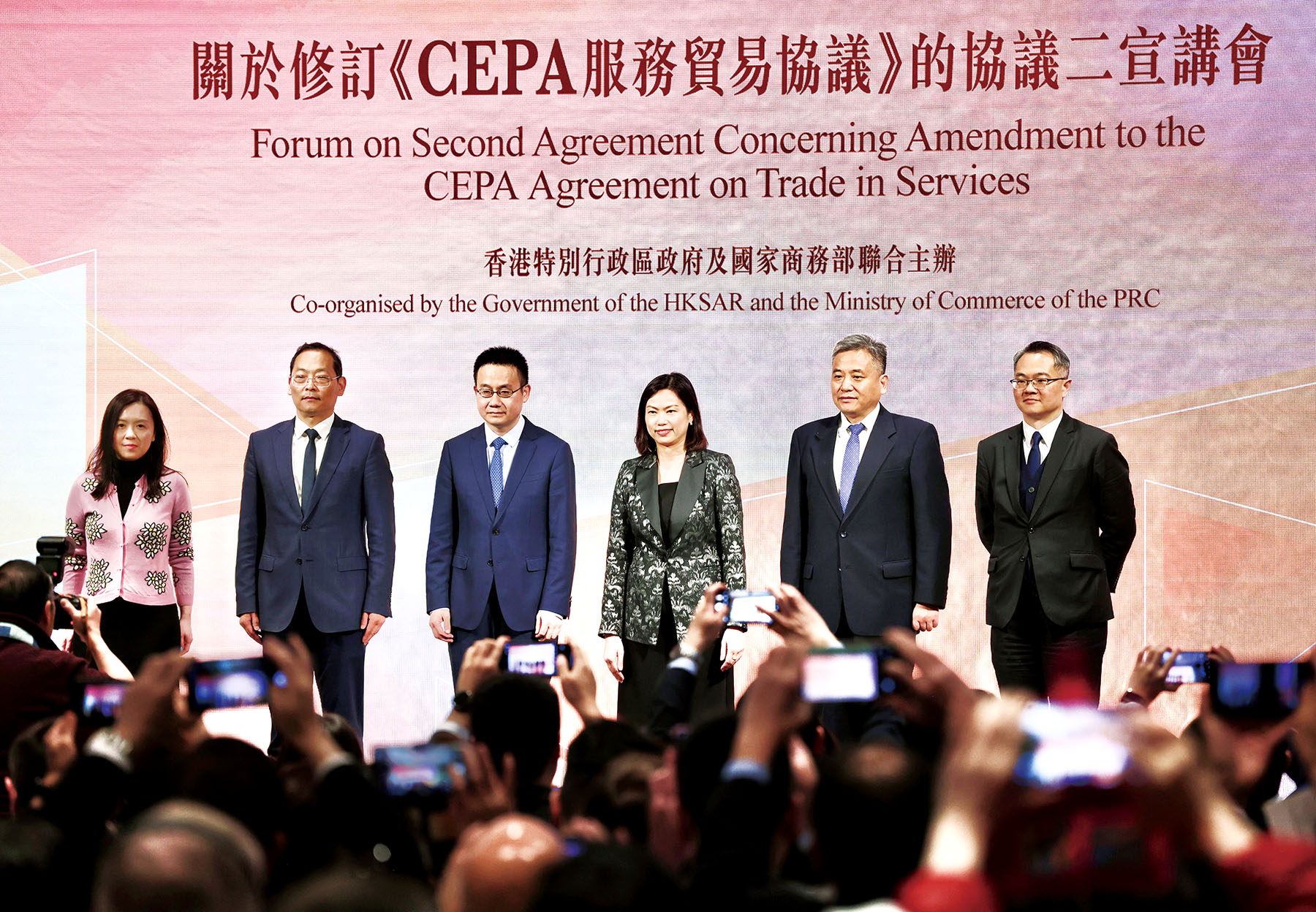
Upcoming arrangements aimed at further liberalizing cross-border services trade will lower entry barriers for Hong Kong businesses to tap into the Chinese mainland market, and attract more global companies to use the city as a gateway for expansion to the mainland, officials and business insiders said at a policy briefing on Wednesday.
The Second Agreement Concerning Amendment to the Mainland and Hong Kong Closer Economic Partnership Arrangement (CEPA) Agreement on Trade in Services will take effect on March 1, following the October signing of the agreement between the Hong Kong Special Administrative Region government and the Ministry of Commerce.
The agreement, which targets industries in which Hong Kong has competitive advantages, such as financial services, construction and related engineering services, and tourism, will ease the entry of Hong Kong companies and professionals to the mainland service sector, said Maggie Wong Siu-chu, permanent secretary for commerce and economic development.
ALSO READ: Mega events, CEPA to further boost HK economy
Among the major changes is the removal of the three-year requirement for Hong Kong service providers in most sectors to have operated in the city, which will enable startups to enjoy preferential treatment under CEPA sooner, and encourage innovation and entrepreneurship in Hong Kong, said Fan Shijie, director-general of the Department of Taiwan, Hong Kong and Macao Affairs of the Ministry of Commerce.
This is expected to enhance Hong Kong’s appeal to international enterprises and professionals, and encourage them to use Hong Kong as a launchpad for entering the mainland market, Fan added.
Under the agreement, Hong Kong-invested enterprises registered in certain mainland cities of the Guangdong-Hong Kong-Macao Greater Bay Area are allowed to adopt Hong Kong or Macao law in their contracts, and to choose either of the SARs for arbitration.
Fan said this will enhance legal protection and provide more flexibility for Hong Kong companies operating on the mainland. With these improvements, Hong Kong firms could have greater confidence to invest on the mainland.
ALSO READ: HKSAR govt to co-host briefing on new agreement under CEPA
“These are very good measures because they loosen the regulations, (which) Hong Kong desperately needs to get business booming again,” said Thomas Chan, CEO and co-founder of Career Hackers, a Hong Kong-based human resources consulting firm.
Chan said these arrangements could help build closer economic and trade ties between the mainland and Hong Kong, and facilitate investment flow into the city. He added he hopes that the two parties can roll out more initiatives focused on talent development and exchange under CEPA, while easing restrictions on mainland capital coming into Hong Kong.
Since the main text of CEPA was signed in 2003, merchandise trade between the mainland and the HKSAR rose from HK$1.53 trillion ($196 billion) to HK$4.83 trillion in 2024, annual growth of 5.6 percent, government data shows.
As of the end of 2024, goods with a total export value of more than HK$160 billion were exempt from under CEPA, saving enterprises over 10 billion yuan ($1.4 billion) in duties.
READ MORE: CEPA’s further liberalizations open doors wider for Hong Kong
The briefing on Wednesday featured three breakout sessions, where representatives from 13 central government ministries and the Hong Kong SAR government introduced the new measures and revealed implementation arrangements to political and business insiders.


